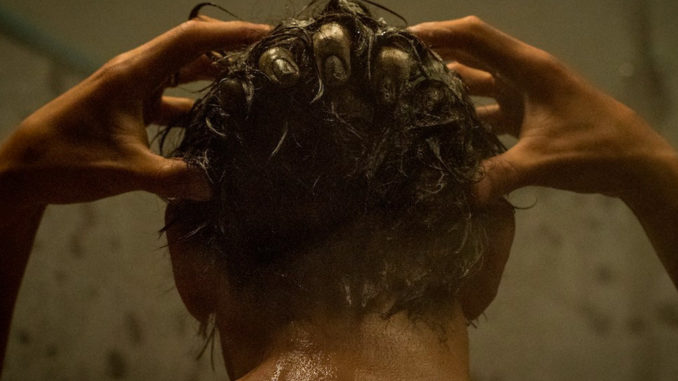
You guys, it’s time to talk about The Grudge (2020). And boy—BOY!—do I have some thoughts for all of you. And, fair warning up top: It’s gonna get real weird before it then stays weird.
I would love to single out one thing about this movie—its arthouse director-helmed production, its oddly quiet marketing strategy, its curiously negative reception—as the weirdest thing about it, but honestly, this film’s whole kit and kaboodle is perplexingly strange, so I think it’s best we just dive in.
We’ll start with director Nicolas Pesce, who I’ll admit out of the gate I love. Freshly graduated from film school, he made one of the best horror movies of 2016—a total arthouse creepshow, minimalistic and beautifully shot, that disturbed me to my generally impenetrable core. Then, demonstrating his range, he made an entirely different kind of darkly comic, highly stylish, throwback-meets-modernity thriller/horror movie (starring sweet baby angel Christopher Abbott) called Piercing. It was released last year, and it was also great.
So, as far as I’m concerned, the dude is two for two here—and that’s two original scripts (Piercing was an eponymous novel adaptation) made on indie film budgets. The Grudge property, obviously, is an entirely different ballgame in both of those respects, but my first thought upon hearing of the then-upcoming Pesce-helmed reboot had nothing to do with that and instead was only They’re rebooting The Grudge? But for whomst? Because, honestly, who asked for this?
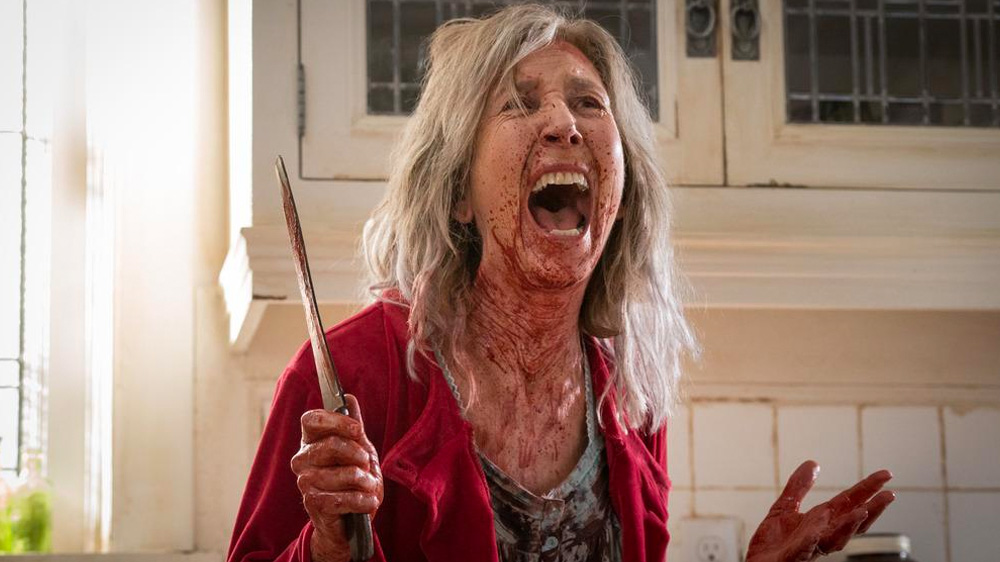
It’s the same question I tend to ask anytime a reboot is announced—which, as we all know, is terribly fucking often these days, when things are so awful that our collective preoccupation with yearning for the days before our middle class was annihilated keeps playing out in cinematic nostalgia porn. Sorry, what?
But anyway, what I’m saying is that the horror throwbacks of late—even the egregiously awful ones—are reigniting properties from the faraway golden age of the 1980s, or even earlier. So yet another thing that makes this year’s The Grudge particularly strange is that…well…it’s not doing that. The Grudge 2020 is a reboot of a 2004 American remake of a 2002 J-Horror movie.
And, well, I guess what I’m wondering is: Who in the fuck feels the need to reboot anything from the early 2000s? …Alas, aside from the president, who’s doing his best to wage yet another unjustifiable war, but honestly fuck that guy. And fuck early 2000s horror also!
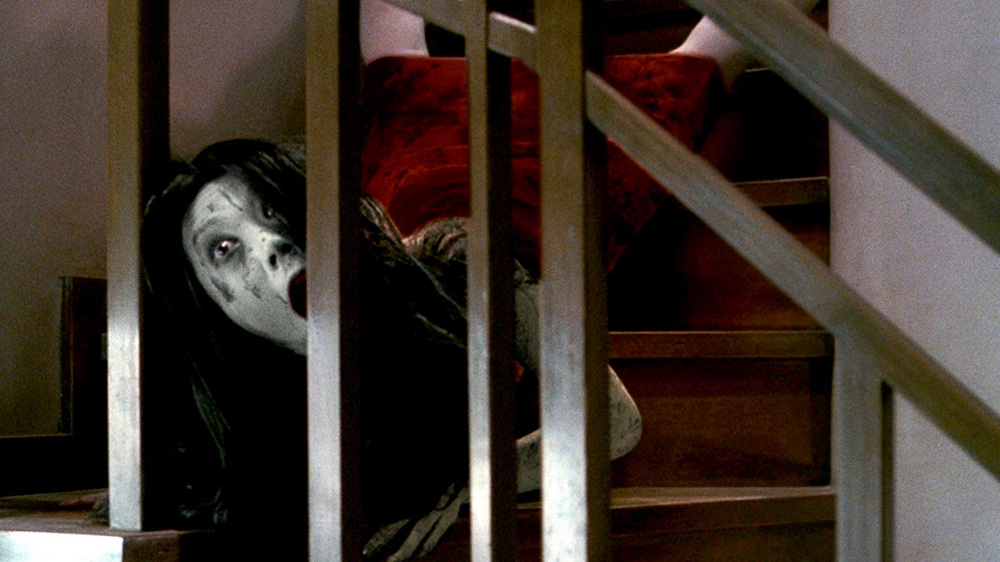
Sure, it wasn’t all bad all of the time—The Others (2001) was great despite Nicole Kidman, 28 Days Later (2002) and Shaun of the Dead (2004) both uniquely changed zombie movies forever, Saw (2004) greenlit the career of one of the best horror directors of the past 20 years and counting. Okay, I’ll give it to you. But folks, lest we forget that these are largely outliers—these are the movies that only start to bridge the gap from the absolutely abhorrent output of the 1990s (minus Wes Craven) into what became an explosive 2010s.
The early aughts were mostly filled with efforts like When a Stranger Calls—an egregiously bad remake from 2006 that somehow still made 66 million dollars at the box office (against is already surprisingly substantial $15 million budget) despite being universally annihilated by critics. Next to its pitiful 9% score, Rotten Tomatoes calls it “largely fright-free” and one of the most “misguided remakes in horror history.” Anyone who saw this movie either didn’t like it or was 12 years old, which can be said about most of the horror from this time period—especially factoring in all of the lazy, cash-grabbing installments released into tired franchises, like 2001’s Jason X and 2002’s Halloween: Resurrection.
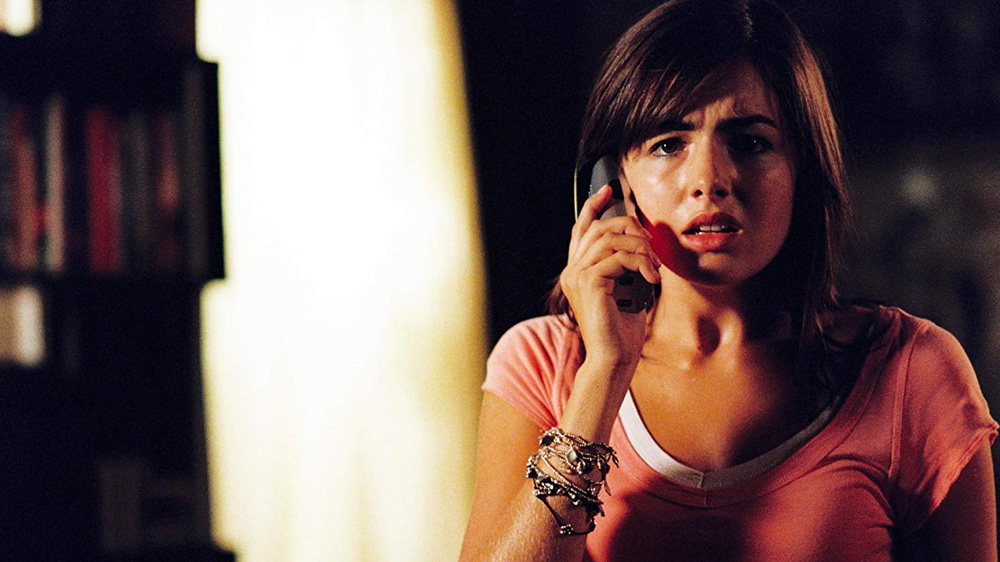
Concurrently, the early 2000s was also the time when big American studios began their preoccupation with J-Horror. More specifically, with remaking J-Horror. This is what The Grudge 2004 is a product of, and it particularly oddly straddles both the straight J-Horror and Americanized J-Horror worlds, as—unlike Ringu (1998) and The Ring (2002), for example—it was done by Takashi Shimizu, the same director who made the Japanese original Ju-On: The Grudge two years earlier.
In case anyone needs a reminder here (and I think some people might), these Americanized movies, frankly, were just okay. They didn’t really offer anything special and in fact were very middle-of-the-road, like most everything else coming out those days. However, The Grudge had enough good-enough moments, enough people saw it, and it made enough money to justify spawning the multiple mediocre sequels that were always a part of its business plan.
But again, as with When a Stranger Calls and others, this is despite the fact that critics didn’t like The Grudge. At best, it got a “pretty alright and nothing special” from anyone who didn’t outright rate it negatively (like Roger Ebert, who hated it). This isn’t surprising, for one, because it wasn’t a fantastic movie, but it’s also unsurprising because even big-budget horror films were almost universally shat upon by most professional, non-genre-specific critics (like Roger Ebert, who called the objectively very good Child’s Play 2 “sick, unwholesome, and completely malignant,” for example).
At least, this was the status quo up until very fucking recently.
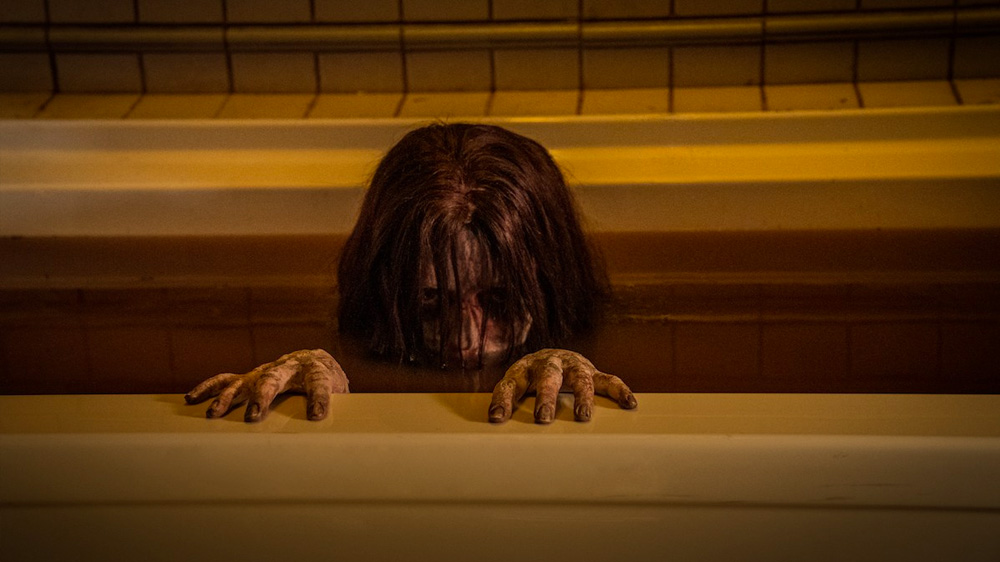
Nowadays, everything is changing. Mainstream critics are dubbing Ari Aster (Midsommar, Hereditary) a directorial darling, Jordan Peele (Us, Get Out) is lauded for his craftily cloaked political metaphors, It (2017) makes 700 million dollars at the box office and gets as fair of a critical shake as would the equally high-earning action/thriller everyone and their grandmother went to see.
Basically, everyone is loving horror right now, and everyone is expecting to love it to a certain degree, which comes with a whole new mess of implications. Some, like greater interest in projects and better resources to produce more ambitious work, are great. Others, like the suffocating weight of innovation and expectation of greatness in the face of rebooting a movie no one is nostalgic for…well, that’s not so great.
And, finally, this brings us to this year’s The Grudge.
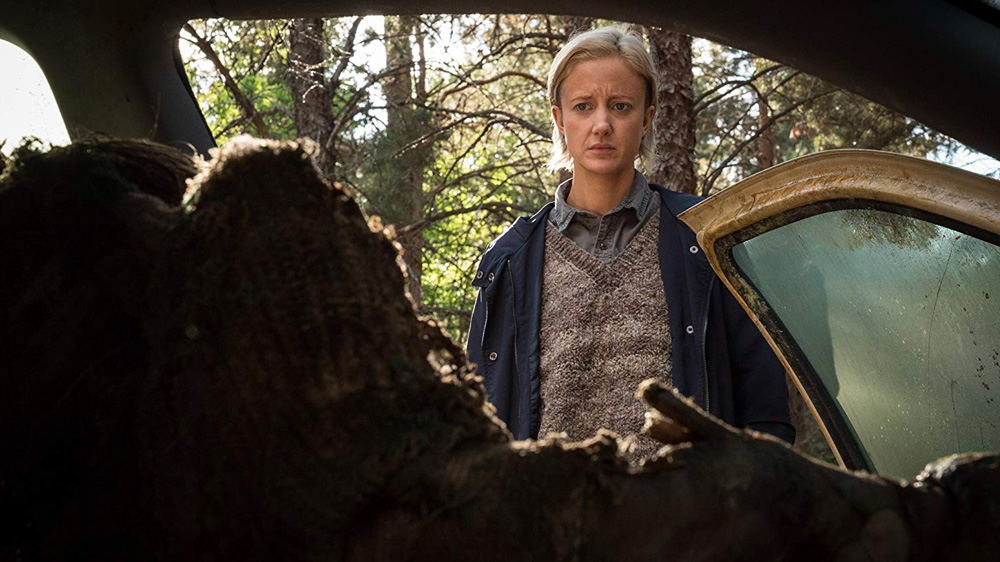
I’m sorry I’ve put you through all of this, but if you’re still with me, I want you to know this: Nicolas Pesce’s Grudge is totally fine. Some might even call it good. At worst, I don’t think it’s very fair to say anything other than that it was exactly was it was supposed to be: a really solid, definitely unnecessary remake of a movie that wasn’t very good in the first place from a time not yet long enough ago for anyone to remember fondly.
Nicolas Pesce did a really great job flexing himself, yet again, in an entirely new direction, it’s just the direction itself that’s the issue. He really captures the vibe of the early 2000s, and he nails the tone and flow of the original narrative despite adjusting the plot to make for more welcome opportunities to ramp up his well-executed gore and violence.
But, at the end of the day, it’s still just…The Grudge. It’s a very good Grudge, perhaps even the best installment in the series, but it’s still The Grudge, and The Grudge is just too stale for 2020. That—what it is and not the reflection of those who created it—is really the film’s only flaw. Just, unfortunately, it’s somewhat of a fatal one.

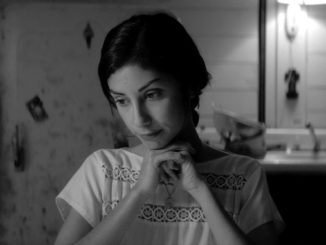
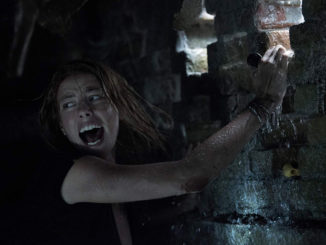
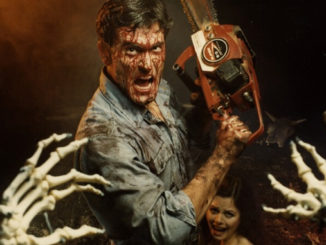
Be the first to comment